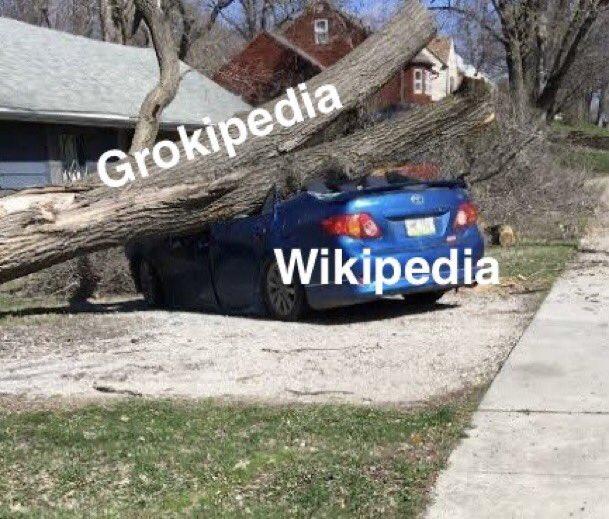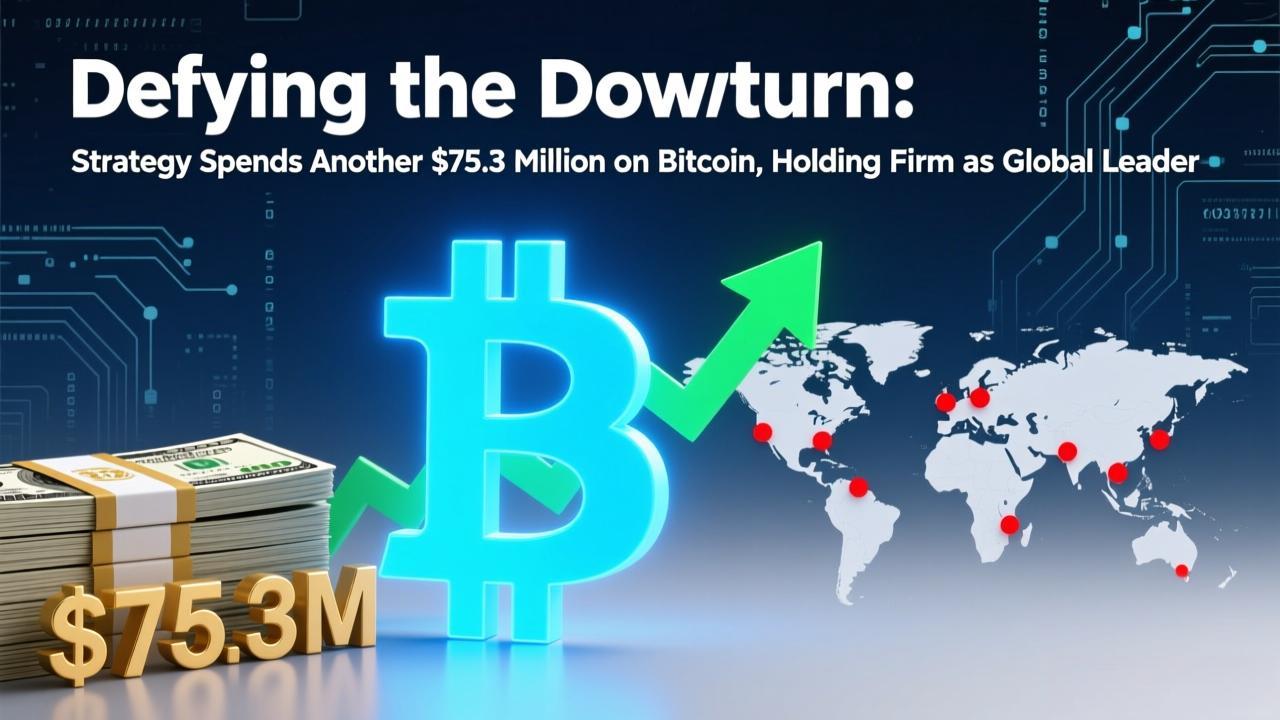
On October 28, Elon Musk officially launched Grokipedia V0.1 and previewed that the 1.0 version would be ten times more powerful than the current one.
With confidence, he claimed that even the current version is more than enough to outperform Wikipedia.
Grokipedia: Minimalist Design with Core Features

The homepage of Grokipedia features an extremely minimalist design, with a single input box as its core element.
The background is a deep black dotted with twinkling stars, instantly evoking the sense of a “sea of knowledge among stars.”
Currently, it hosts over 880,000 articles, with facts verified primarily through Grok. It also supports online interaction and error reporting.
Link: https://grokipedia.com/
Controversy Erupts Hours After Launch
Within hours of its release, this project—touted as a replacement for Wikipedia—sparked intense debate.
Some netizens sharply commented that Grokipedia is nothing more than a “copy-paste” of Wikipedia, duplicating everything from content to formatting.
For example, when explaining the “Miller Effect” in semiconductors, Grokipedia’s content is identical to Wikipedia’s, amounting to outright “plagiarism.”

Musk quickly pushed back, stating, “We will never be perfect, but we will still strive for it.
The ultimate goal of Grok and Grokipedia is truth—all the truth, and nothing but the truth.”
Is the Wikipedia Era Truly Over?
The Origin of Grokipedia
In early October, news emerged that xAI’s team had been secretly developing Grokipedia internally.
At the time, Musk described it as an AI-powered, open-source encyclopedia—calling it a “necessary step toward xAI’s goal of understanding the universe.”
As early as 2019, Musk was deeply frustrated after reading his personal introduction on Wikipedia.

He complained that the page seemed like a “battleground of billions of edits” and criticized “fact-checkers” for labeling him merely an “investor.”
Later, Musk clashed publicly with Wikipedia founder Jimmy Wales over issues like “political incorrectness” in Wikipedia’s content.

Now, with Grokipedia officially open-sourced, has Musk achieved the “truth” he claims to pursue?
A Test: Searching for “Elon Musk”
When searching for “Elon Musk,” Grokipedia generates a comprehensive introduction in seconds, comparable to a full personal biography.
Beyond the opening summary, it details Musk’s childhood, early entrepreneurial experiences, business empire, personal life, and key events in his political and business career.
Finally, Grokipedia includes over 300 reference links.


Compared to Wikipedia, Grokipedia’s introduction has minor differences, but the core information remains largely consistent.
The biggest distinction is a “Grok Fact-Check” label at the top of each article, showing the date of the last fact verification to ensure content accuracy.


Additionally, users can highlight text to interact with Grok, and anyone can submit suggestions to correct factual errors.
Content Scale: Grokipedia vs. Wikipedia
As mentioned, Grokipedia currently hosts 885,279 articles.
In contrast, Wikipedia states on its website that the English version now has 7,081,800 articles—nearly 8 times the number on Grokipedia.
Mixed Reviews: Acclaim vs. “Plagiarism” Allegations
After launch, Grokipedia faced complaints about instability, with users reporting frequent access failures and outages.
However, opinions on its knowledge-finding capabilities are divided.
Mark Kern, dubbed a “dark behind-the-scenes operator,” praised Grokipedia for its “fair characterization of GamerGate,” stating it “finally tells the truth.
This is the most impartial conclusion in history, unlike Wikipedia, which has parroted lies made up by gaming media year after year.”
Another netizen compared the two platforms’ handling of the “George Floyd” entry, noting:
“Grokipedia completely outperforms Wikipedia in detail and narrative depth—it doesn’t push ideology like the latter does.”
Many more positive reviews have poured in.
The controversy, however, lies in netizens’ discovery that much of Grokipedia’s content is directly copied from Wikipedia.
That said, just as nearly all current AI search tools use Wikipedia as a source, Grokipedia may soon become a reference for other AIs as its content expands.
Hands-On Experience: Searching for xAI and OpenAI
Searching for “xAI”
Grokipedia provides a roughly 4,200-word entry, while Wikipedia’s is only 1,000 words.
Beyond a more detailed introduction, Grokipedia’s sidebar table of contents covers not just historical development, product technology, infrastructure, and financial performance, but also controversies (such as criticism of Grok’s extreme remarks).
In terms of references, Grokipedia also outperforms Wikipedia—98 sources versus 65.
Searching for “OpenAI”
To rule out the possibility of Grokipedia favoring its “sister company” xAI, we searched for its rival, OpenAI.
This time, Grokipedia’s entry spans approximately 4,200 words, compared to Wikipedia’s 1,000 words.
Grokipedia’s coverage of OpenAI is comprehensive: from its founding in 2015 to its latest products in 2025, plus business partnerships, personnel changes, open-source alignment, social impact, Sam Altman’s firing and reinstatement, and recent lawsuits over teenage suicides.

AI Search Diverts 8% of Traffic—Musk Enters the Fray


In 2000, Jimmy Wales and Larry Sanger launched Nupedia, a website with expert-reviewed content.
At the time, articles were written by experts and underwent multiple review rounds—a rigorous but extremely slow process. After a year, fewer than two dozen entries had been officially approved.
To speed things up, they launched the “open-collaboration” Wikipedia in early 2001, allowing anyone to edit. It quickly developed into a self-sustaining system.
By 2006, the English version of Wikipedia had over 1 million entries. Today, it hosts tens of millions of articles.
Over the past 24 years, Wikipedia has become one of the highest-quality websites on the internet, known as the world’s “encyclopedia.”
Wikipedia’s Decline in the AI Search Era
The rise of AI search has pushed Wikipedia into a slump.
Latest data from the Wikimedia Foundation shows that Wikipedia page views have dropped by 8% year-on-year.
Director Marshall Miller pointed out that GenAI and social media have “greatly changed how people access information. In particular, search engines now use AI to summarize answers directly instead of linking to sites like ours.”
Browsers like Google Overviews, OpenAI’s Atlas, and Perplexity’s Comet have all become major threats to Wikipedia.
Now, Musk is aiming to “disrupt the status quo” by building the open-source Grokipedia.
Wikipedia Fights Back
In an interview, founder Jimmy Wales argued that “AI cannot replace Wikipedia’s accuracy.”
To regain its edge, Wales has led the establishment of an internal working group focused on two priorities:
- Ensuring content remains neutral and objective.
- Creating guidelines to encourage academic research into biases within Wikipedia.
In the AI search era, Wikipedia needs to win a comeback battle.





